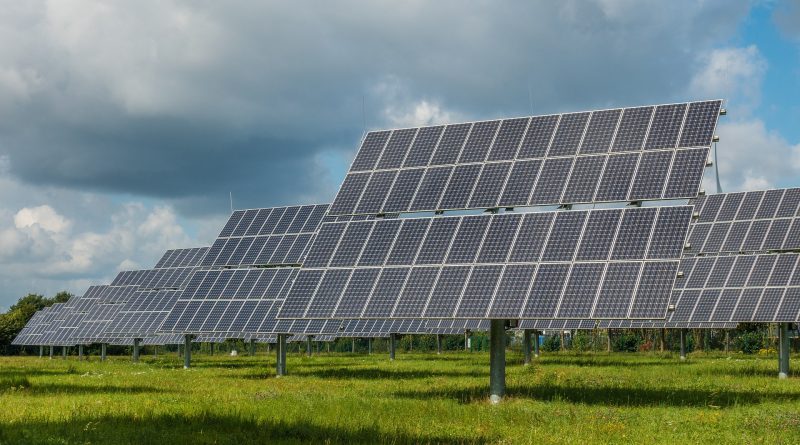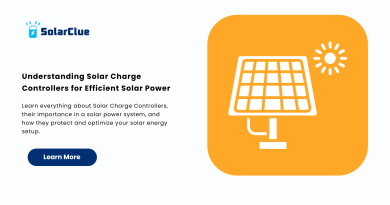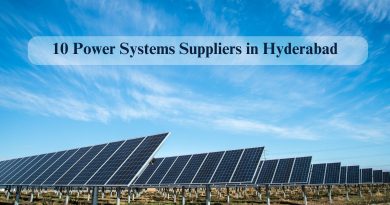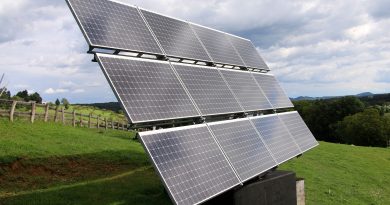Do You Need Batteries for On-Grid Solar Power? Explained
On-grid solar power systems are gaining popularity as a sustainable and cost-effective solution for generating electricity. One question that often comes up when considering an on-grid solar power plant is whether or not batteries are needed. In this blog, we will explore the benefits and limitations of batteries in on-grid solar power plants and determine if they are a necessary component.
Table of Contents
The Functionality of an On-grid Solar Power Plant
An on-grid solar power plant, also known as a grid-tied or grid-connected system, is designed to generate electricity that is consumed directly, or excess energy is fed back into the main power grid. The system includes solar panels, an inverter, and connection to the utility grid.
The Role of Batteries in an On-grid Solar Power Plant
Batteries are not typically included in on-grid solar power plants, as these systems rely on the electricity grid for energy storage. When the solar panels produce more electricity than the immediate demand, the excess energy is simply fed back into the grid. Conversely, when the solar panels are not producing enough electricity, power can be drawn from the grid to meet the demand.
Benefits of Not Having Batteries
1. Cost-effectiveness: One of the major advantages of on-grid solar power plants without batteries is the cost-effectiveness. Battery storage systems can add significantly to the overall cost of the installation. By eliminating batteries, the initial investment can be significantly reduced.
2. Simplicity: On-grid solar power plants without batteries are simpler in design and require less maintenance. With fewer components to worry about, the maintenance costs are reduced, and the system is more reliable.
3. Grid as a virtual battery: The power grid can act as a virtual battery for on-grid solar power plants. When excess electricity is produced, it is fed back into the grid and credited. During periods of low solar generation, electricity can be drawn from the grid, with the credits utilized to offset the costs.
Limitations of On-grid Solar Power Plants without Batteries
1. Grid dependency: The primary limitation of on-grid solar power plants without batteries is the dependency on the grid for electricity storage. If there is a power outage, the system will not be able to generate electricity. This is a significant drawback for areas with unreliable grid infrastructure.
2. No backup power: Without batteries, on-grid solar power plants cannot provide backup power during grid failures. During blackouts, the system will not be able to function independently, leaving the connected appliances or devices without power.
Is It Necessary to Have Batteries?
The necessity of batteries in an on-grid solar power plant ultimately depends on the individual’s requirements and the local grid infrastructure. For individuals and businesses that have a reliable grid and do not experience frequent power outages, batteries may not be necessary. However, if the grid is unreliable or if backup power is a critical requirement, batteries become essential.
Conclusion
The decision to include batteries in an on-grid solar power plant depends on several factors. While on-grid solar power plants without batteries offer cost-effectiveness, simplicity, and the ability to utilize the grid as a virtual battery, they have limitations in terms of grid dependency and lack of backup power during grid failures. It is essential to evaluate individual needs and local grid reliability when deciding on the necessity of batteries. Ultimately, consulting with a solar energy professional can provide valuable guidance in making an informed decision that aligns with specific requirements.
Optimize your on-grid solar experience! Explore the need for batteries with SolarClue®. Enhance your solar power plant efficiency and embrace sustainable energy.
Frequently Asked Questions
While not mandatory, batteries can enhance energy storage and usage flexibility in on-grid solar systems.
Batteries store excess energy, ensuring a stable power supply during periods of low solar generation.
While primarily designed for grid-tied operation, batteries can provide limited off-grid functionality during power outages.
Batteries can increase initial costs, but they offer long-term benefits, including reduced reliance on the grid and potential savings.
Various battery technologies, such as lithium-ion and lead-acid, are compatible with on-grid solar systems. The choice depends on specific needs and preferences.
Regular monitoring and occasional maintenance are advisable to ensure optimal performance and longevity.
Yes, it’s possible to retrofit batteries into an existing on-grid solar setup, but it’s essential to ensure compatibility.
The lifespan varies but is generally around 5 to 15 years, depending on the type and usage.
Yes, with the right setup, batteries can store energy and provide backup power during grid outages.
In some regions, incentives and rebates may be available to encourage the integration of energy storage solutions into on-grid solar systems.




